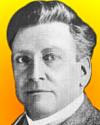
On 19 Sep 1851, William Lever, later Lord Leverhulme, was a British manufacturer and philanthropist. For the benefit of his workforce, he had a town built-to-order with 239 acres for his factory and 233 acres for not only housing, but also churches, clubs, schools, an inn, swimming pool, hospital, gymnasium, baths, tennis courts, and common gardens in addition to the individual gardens with the houses. The houses were never sold, but the rents were nominal, just a few shillings a week.
It is notable that he saw the strength of the company as coming from the well-being of his workers, and he realized that by investing in them, he was investing in the future of the business. This contrasts with the modern corporate goal which has in certain cases become to maximize immediate short-term profits for the shareholders, while holding down wages, holding down hours, and using part-time workers denied benefits and dependable hours.
Whereas Lever founded his business on exporting a common household product, which he manufactured in annual quantities of tens of thousands of tons and shipped worldwide, modern corporate goals too often seem to be to export the jobs. For more background on Lever's philosophy and how he made it successful, read this article on William Lever (Lord Leverhulme) from The Chemical Age (1919). Lever made his enterprise enormously successful, and didn't have a business school education telling him how to do it.

On 19 Sep 1851, William Lever was born, a British manufacturer and eccentric Victorian philanthropist. Today's book pick is: The King of Sunlight: How William Lever Cleaned Up the World, by Adam Macqueen, who relates the life of a man who both created an international manufacturing business while holding beliefs far ahead of his time—the welfare state and votes for women (although he also believed that employers should dictate how workers spend their weekends). He was also far in advance of laws requiring factories to have fresh air, fire alarms, or sprinklers. He built a planned village for his workers outside Liverpool. This jovial and well-researched book rescues from obscurity an odd and influential mercantile prince, whose business empire that straddled the world, as far as the Congo, with schools and hospitals he provided for the workers, an example of care that was unprecedented in that continent. The book also reveals remarkable eccentricities, such as having his bedroom built for open-air sleeping, even open in all weathers.
It is available from Amazon, typically about New from $49.17. Used from $2.97. (As of earlier time of writing - subject to change.)
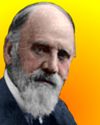 | For books [Charles Darwin] had no respect, but merely considered them as tools to be worked with. … he would cut a heavy book in half, to make it more convenient to hold. He used to boast that he had made Lyell publish the second edition of one of his books in two volumes, instead of in one, by telling him how ho had been obliged to cut it in half. … his library was not ornamental, but was striking from being so evidently a working collection of books. |
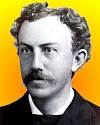 | Wisdom is knowing what to do next, skill is knowing how to do it, and virtue is doing it. |
 | We won't argue; you're wrong. [A common comment to his employees illustrating his resistance to changing his mind about his grand schemes.] |
| Before you look at today's web page, see if you can answer some of these questions about the events that happened on this day. Some of the names are very familiar. Others will likely stump you. Tickle your curiosity with these questions, then check your answers on today's web page. | |
| Births | |
 | William Lever, born 19 Sep 1851, was a British philanthropist and industrialist who built an international firm. What was this firm's major product? |
 | Jean-Baptiste-Joseph Delambre, born 19 Sep 1749, was a French astronomer who is known for his tables that plot the location of one of the planets in particular. For which planet did he prepare these tables? |
| Deaths | |
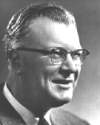 | Chester F. Carlson (1906-1968) was an American physicist who invented xerography, an electrostatic dry-copying process that found applications ranging from office copying to reproducing out-of-print books. The process involved sensitizing a photoconductive surface to light by giving it an electrostatic charge In what decade did he begin to develop the process? |
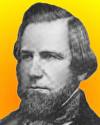 | William Howe (1803-1852) was an American inventor who pioneered in the design of a certain type of bridges for the developing railroads, which he patented. His first bridge (1838-39) was a light, cheap and substantial structure across the Quaboag River at Warren, Mass. By 1842, he had spanned the Connecticut River. What type of bridge structure did Howe invent? |
| Events | |
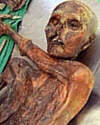 | On 19 Sep 1991, a Stone Age wanderer and the most ancient human being ever found, was discovered in the Similaun glacier in the Alps on the Italian-Austrian border. His frozen body was found along with artifacts of his vanished way of life in the Ötzal region of the Alps, hence the name Ötzi given him by an Austrian reporter. By what nickname is this man commonly known? |
 | On 19 Sep 1783, a duck, a sheep and a rooster were launched in a test aboard a hot-air balloon at Versailles in France. Who was the pioneer making this test? |
Fast answers for the previous newsletter for September 18: neptunium and plutonium • microscopic particles involved in the condensation of atmospheric water vapour in clouds and fogs • they devised an accelerator that generated large numbers of particles at lower energies. The Cockcroft-Walton generator they built was the first atom-smasher • Armand Hippolyte Fizeau • decade containing the year 1980 • Tom Thumb.
 If you enjoy this newsletter, the website, or wish to offer encouragement or ideas, please send feedback by using your mail reader Reply button.
If you enjoy this newsletter, the website, or wish to offer encouragement or ideas, please send feedback by using your mail reader Reply button. Your click on a Facebook, StumbleUpon, or other social button on the site webpages is also a welcome sign of appreciation. Thank you for using them.
© This newsletter is copyright 2020 by todayinsci.com. Please respect the Webmaster's wishes and do not put copies online of the Newsletter — or any Today in Science History webpage. (If you already have done so, please remove them. Thank you.) Offline use in education is encouraged such as a printout on a bulletin board, or projected for classroom viewing. Online, descriptive links to our pages are welcomed, as these will provide a reader with the most recent revisions, additions and/or corrections of a webpage. For any other copyright questions, please contact the Webmaster by using your mail reader Reply button.
--
If you do not want to receive any more newsletters, Unsubscribe
To update your preferences and to unsubscribe visit this link
Executive Real Estate Business Class
-
"It was like a man with wings. It wasn't like anything you'd see on TV or in a monster movie." ...
About the publisher
Search This Blog
Blog Archive
-
▼
2020
(1542)
-
▼
September
(173)
- SCIENCE: Just how big is Everest?
- The Latest News from History News Network
- On This Day for September 30 - Munich Agreement si...
- We are called to return to our foundational values...
- Newsletter for Wednesday 30 September.
- They Killed His Wife And Left Him For Dead – Then ...
- TRAVEL: Telling new truths about America’s histori...
- Make learning fun with Nat Geo Kids magazine! Subs...
- On This Day for September 29 - British mandate in ...
- Newsletter for Tuesday 29 September.
- Special Edition: Dinosaurs come to life like never...
- September 29: On This Day in History
- HISTORY: America's most endangered historic sites
- New This Week on History News Network
- On This Day for September 28 - California “discove...
- Newsletter for Monday 28 September.
- September 28: On This Day in History
- FAMILY: What do I tell my kids about wildfires and...
- On This Day for September 27 - Norman Conquest beg...
- Newsletter for Sunday 27 September.
- September 27: The Rosetta Stone, E=mc² and Fear as...
- The Compass: Indonesia
- On This Day for September 26 - First televised U.S...
- Newsletter for Saturday 26 September.
- September 26: Frances Drake's Circumnavigation, th...
- CORONAVIRUS UPDATE: Is this the end of the office?
- PHOTOGRAPHY: They feed us. Now we see them.
- The assassination of Lord Mountbatten | Enola Holm...
- 39,500-Year-Old Cave Bear Discovered Perfectly Pre...
- On This Day for September 25 - Pacific Ocean sight...
- The Roundup Top Ten for September 25, 2020
- Newsletter for Friday 25 September.
- September 25: Battle of Stamford Bridge, Remote Co...
- ANIMALS: These mighty elephants find peace
- On This Day for September 24 - Federal troops sent...
- Newsletter for Thursday 24 September.
- Global cartels taking control of the world + HPA B...
- September 24: Decline of the Byzantine Empire, Ope...
- YOUR WEEKLY ESCAPE: America's oldest mystery
- SCIENCE: How to cope with a big death toll
- The Latest News from History News Network
- On This Day for September 23 - Neptune observed, J...
- Newsletter for Wednesday 23 September.
- September 23: Nintendo, the Start of Data Processi...
- TRAVEL: How will America’s state parks survive?
- Matching gift opportunity for Sumatran rhinos
- On This Day for September 22 - Solidarity formed, ...
- Newsletter for Tuesday 22 September.
- September 22: Salem Witch Trials, Iraq's Invasion ...
- HISTORY: Who can replace RBG?
- Feed their curiosity! Get Nat Geo Kids magazine fo...
- New This Week on History News Network
- On This Day for September 21 - Joseph Smith's visi...
- Newsletter for Monday 21 September.
- September 21: France, China and a Sheep Shearing R...
- FAMILY: Don’t tell your kids outdated stuff about ...
- On This Day for September 20 - Rome incorporated i...
- Pro-life is not Politics + Vickie Travis's message...
- Newsletter for Sunday 20 September.
- September 20: Attila the Hun, Magellan's Circumnav...
- The Compass: Chile
- Matching gift opportunity for Sumatran rhinos
- On This Day for September 19 - George Washington's...
- Newsletter for Saturday 19 September.
- CORONAVIRUS UPDATE: Young people are spreading the...
- September 19: 1st Country to Grant Women the Right...
- PHOTOGRAPHY: How to make dinos look new (CORRECTED)
- Quick Note: How to Save Videos by Downloading
- PHOTOGRAPHY: How to make dinos look new
- The Mayflower | Medieval spiders | Ancient Egypt f...
- When She Found Out Her Boyfriend Was A Serial Kill...
- The Roundup Top Ten from History News Network
- On This Day for September 18 - Mukden seized by Ja...
- Newsletter for Friday 18 September.
- "Truth Crushes Evil" + We're Winding down + What ...
- YOUR WEEKLY ESCAPE: The country that doesn't exist
- September 18: Great Fire of Moscow, the CIA and El...
- ANIMALS: How U.S. officials stopped the flying squ...
- Two New Podcasts From HISTORY
- Don't miss out: back to school savings for learner...
- On This Day for September 17 - Camp David Accords ...
- Newsletter for Thursday 17 September.
- September 17: Bloodiest Day in the American Civil ...
- SCIENCE: He found part of a one-of-a-kind dinosaur
- SPECIAL REPORT: How the West is primed to burn
- The Latest News from History News Network
- On This Day for September 16 - Mayflower's departu...
- Newsletter for Wednesday 16 September.
- September 16: French Abolish Slavery, Malaysia For...
- TRAVEL: Will slowing down help you get stronger?
- Special Report: How do we end this pandemic?
- On This Day for September 15 - Central Americans g...
- Newsletter for Tuesday 15 September.
- September 15: Darwin Reaches the Galapagos, Penici...
- HISTORY: How the U.S. battled catastrophic wildfir...
- BREAKING NEWS: Possible evidence of life found on ...
- Discover Remarkable Leaders With Nat Geo History M...
- On This Day for September 14 - Mexico City capture...
- New This Week on History News Network
- Newsletter for Monday 14 September.
-
▼
September
(173)
-
Blogroll
-
About
HistoryFact










0 comments:
Post a Comment